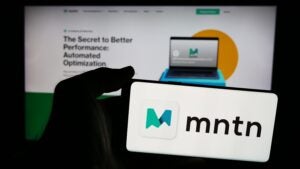 ValueClick CEO John Giuliani was harder on the company’s Q4 2012 performance than the analysts on the company’s earnings call. Though revenues rose a decent 14 percent to nearly $200 million for the period, it was quite a difference from Q4 2011’s 42% gains, which were largely driven by the addition of Giuliani’s previous company, ad targeter Dotomi, to the mix. Read the earnings release.
ValueClick CEO John Giuliani was harder on the company’s Q4 2012 performance than the analysts on the company’s earnings call. Though revenues rose a decent 14 percent to nearly $200 million for the period, it was quite a difference from Q4 2011’s 42% gains, which were largely driven by the addition of Giuliani’s previous company, ad targeter Dotomi, to the mix. Read the earnings release.
Still, for Giuliani, who was promoted to CEO from COO in December, the focus continues to be on completing a tighter integration of the company’s parts and in rounding out ValueClick’s leadership. During the call, he said the company would likely name a chief marketing officer in the coming weeks. Also, once the company finishes consolidating its analytics and data operations, a single exec will be put in charge of that function as well.
Apart from integration, analysts were interested in how the company’s ad network positioning has evolved in the age age of programmatic buying, and how it has benefitted from its role as a Facebook Exchange preferred partner. Giuliani said FBX was intriguing to clients, but that at the moment, it remains experimental.
“We’re seeing sporadic demand” for FBX, Giuliani said. “I wouldn’t say advertisers are looking for that service across the board. It’s more of curiosity than anything else at this point.”
The lack of intense interest stems from the requirements FBX places on advertisers, Giuliani said. In particular, clients are a leery of giving up creative control and surrendering consumer data.
“It depends on the business and whether Facebook Exchange fits into it,” Giuliani said. “But it’s an efficient inventory opportunity and we look for unique reach, performance and price in everything we participate in. FBX has all that, but it’s too early to tell whether the conversion rates go up enough. It’s not a headline, but it’s really just a mix of inventory right now. And we think of inventory as fairly fungible. As such, we’re not too tied to any one inventory source on purpose.”
Most of Giuliani’s attention is on integration. In other words, don’t expect too much M&A activity this year.
“The critical focus right now is on getting our priorities ironed out,” he said. “When you do too much M&A, you don’t get much done. We want to do an intelligent integration. We’re not going to be looking for M&A opportunities. We get approached all the time. If it helps us with the affiliate business or mobile or video, we will take a hard look at what’s being offered. What you won’t see us look for is any kind of M&A to add general growth. I think it’s important for our customers, shareholders to generate organic growth out of our existing assets.”
And for the moment, Giuliani is dissatisfied with the results from those assets — affiliate marketing (represented by Commission Junction), media, and owned & operated.
“I’m never really happy about these things,” Giuliani said. “We try to fight off any hubris. When I was running Dotomi, I was never happy and we had 95%, 98% growth rates. I want our organization to be judged by how well we exercise the opportunities.”
Giuliani was asked how the company’s primary ad network business, which is run by President Bill Todd, has maintained its relevancy at time of real-time bidding and programmtic media buying. He said the ad network had broadened from the traditional model in the past year, and noted that ValueClick has a full range of programmatic, buy-side abilities.
“Whether it’s providing a managed demand side platform to our customers or something else in the exchange space, we’re one of the few companies that can be full service,” he said. “We also have proprietary mobile and video capabilities. So there is plenty for us to do and to compete against in this area.”










